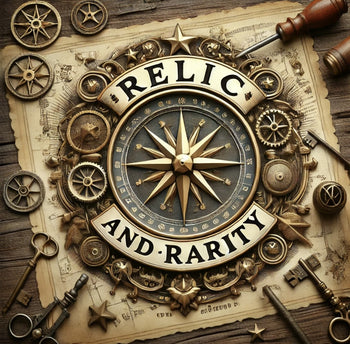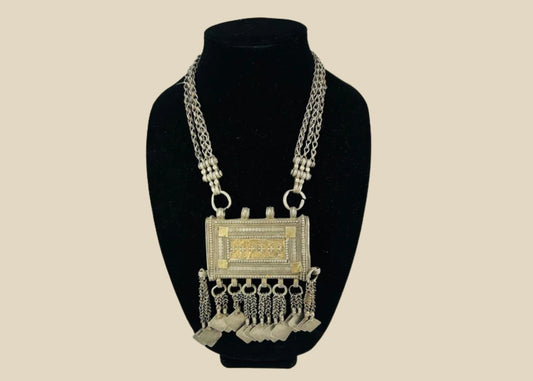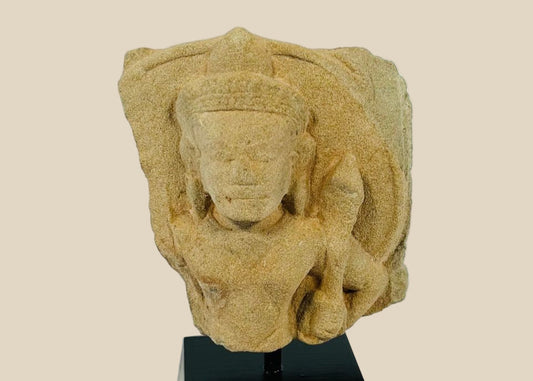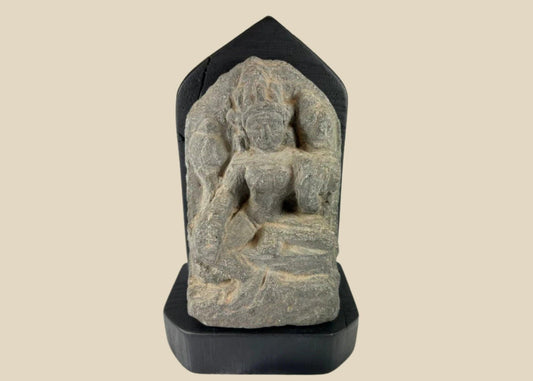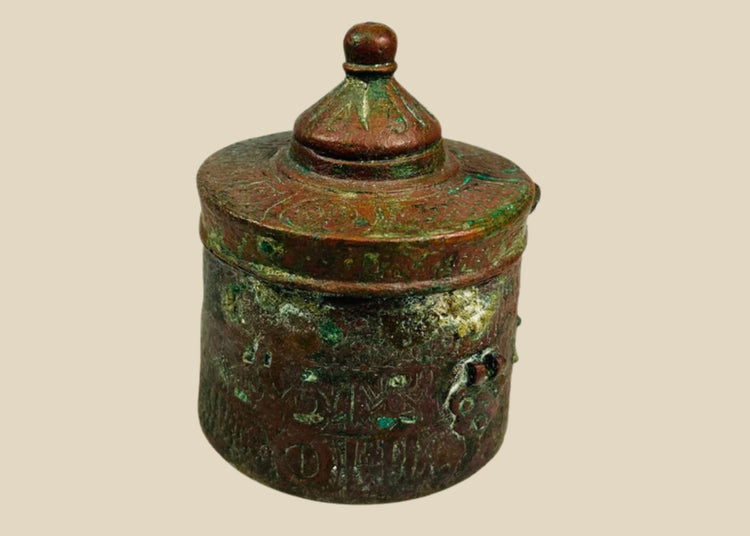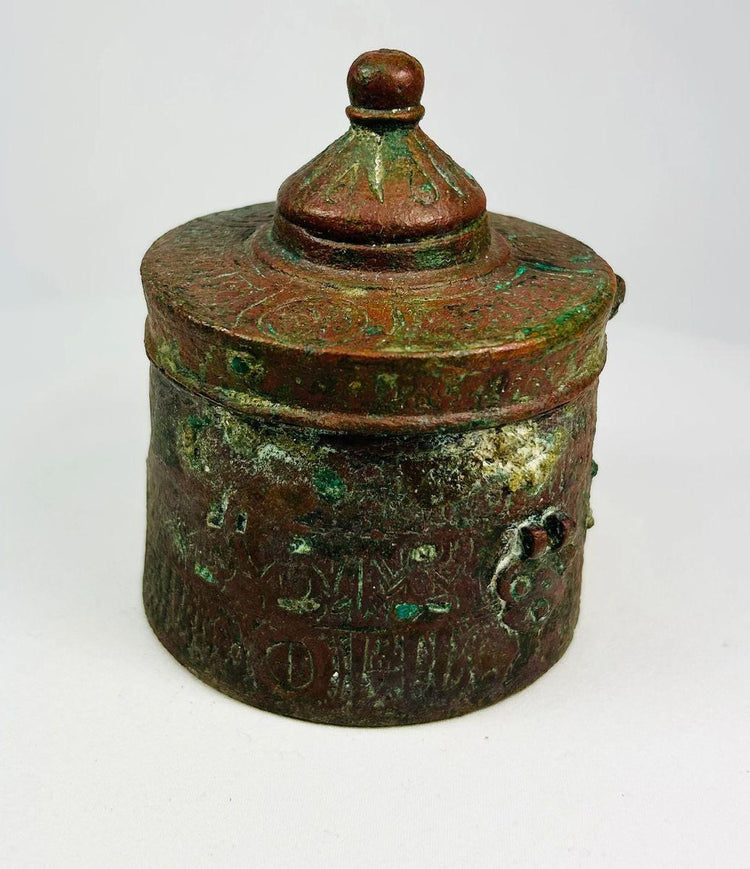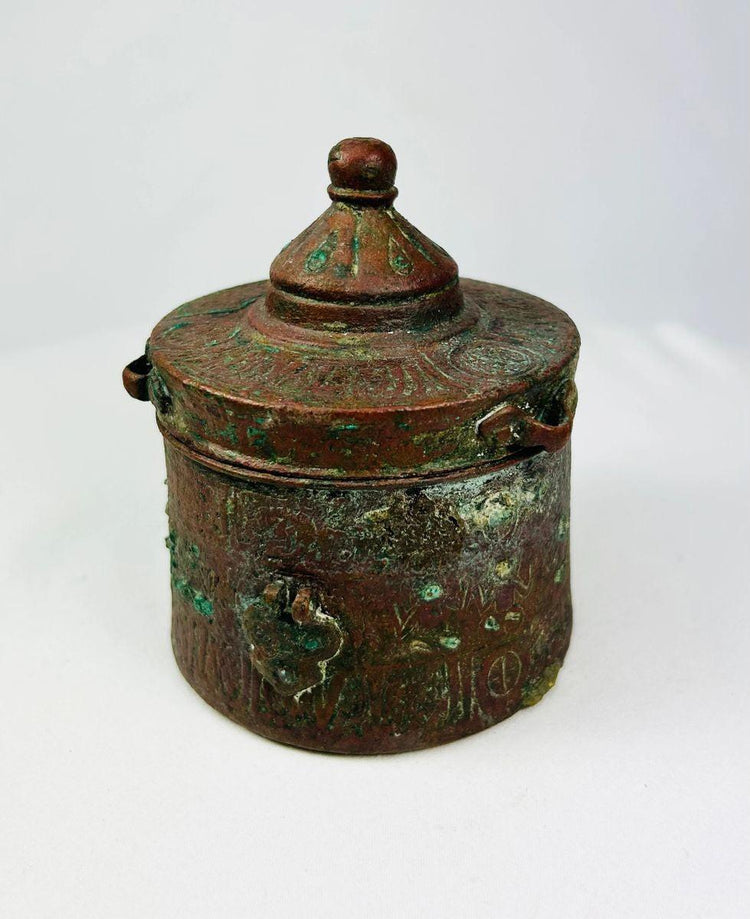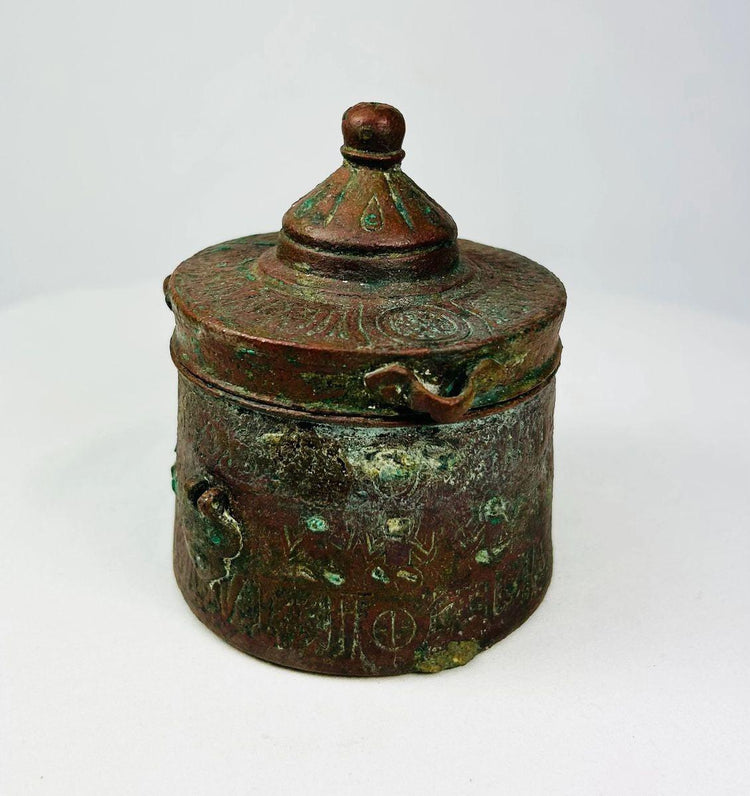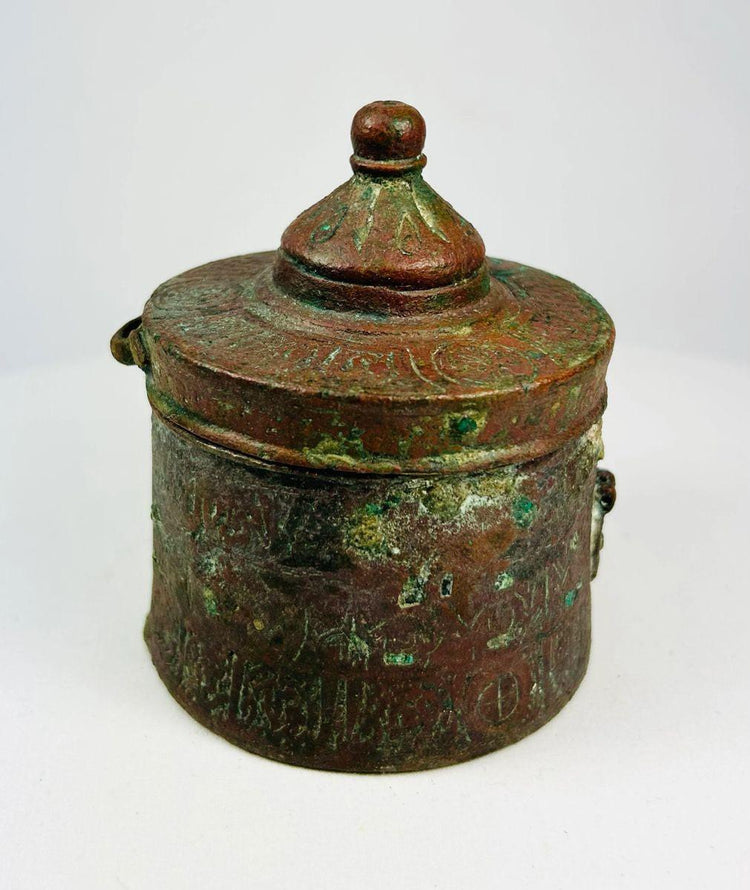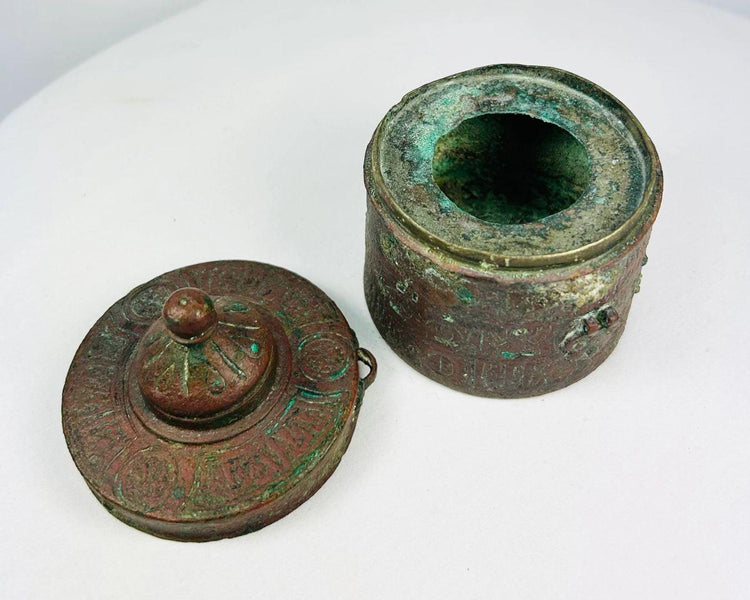Islamic Khorassan Bronze Inkwell | Engraved Floral & Geometric Motifs | 10th–12th Century CE
Description
More
Less
Historical Context & Origin
Region: Khorassan (northeastern Iran, Afghanistan, and Central Asia)
Material: Cast bronze with engraved decoration
Period: 10th–12th Century CE
Description
This Islamic Khorassan bronze inkwell, dating from the height of the Islamic Golden Age, is finely decorated with engraved floral and geometric motifs characteristic of the region’s metalwork. It features a cylindrical body and a domed lid with a central handle, allowing both aesthetic refinement and practical function. The flowing engraved designs exemplify the advanced artistry of Khorassan craftsmen, who produced some of the finest bronzework of the medieval Islamic world.
Features
- Finely engraved floral and geometric decoration
- Domed lid with central handle for practical use
- Cylindrical body with continuous engraved motifs
- Rich aged patina of green and brown tones
- Reflects the cultural sophistication of the Islamic Golden Age
Cultural Significance
Inkwells were indispensable to scholars, scribes, and poets of the Islamic Golden Age, when calligraphy and manuscript illumination flourished. Such objects were symbols of intellectual life, valued both for their beauty and their role in preserving religious, philosophical, and scientific knowledge. A piece like this would have been prized by a learned individual, representing the high esteem placed on scholarship and the written word.
Condition
The inkwell survives in very good antique condition, with a rich natural patina from centuries of age. Minor surface wear and weathering are consistent with prolonged use, but the engraved motifs remain clearly visible. No modern restoration detected.
Dimensions (approximate)
Height: 3 in
Width: 2.5 in
Age
Approximately 900–1,100 years old
Description
Historical Context & Origin
Region: Khorassan (northeastern Iran, Afghanistan, and Central Asia)
Material: Cast bronze with engraved decoration
Period: 10th–12th Century CE
Description
This Islamic Khorassan bronze inkwell, dating from the height of the Islamic Golden Age, is finely decorated with engraved floral and geometric motifs characteristic of the region’s metalwork. It features a cylindrical body and a domed lid with a central handle, allowing both aesthetic refinement and practical function. The flowing engraved designs exemplify the advanced artistry of Khorassan craftsmen, who produced some of the finest bronzework of the medieval Islamic world.
Features
- Finely engraved floral and geometric decoration
- Domed lid with central handle for practical use
- Cylindrical body with continuous engraved motifs
- Rich aged patina of green and brown tones
- Reflects the cultural sophistication of the Islamic Golden Age
Cultural Significance
Inkwells were indispensable to scholars, scribes, and poets of the Islamic Golden Age, when calligraphy and manuscript illumination flourished. Such objects were symbols of intellectual life, valued both for their beauty and their role in preserving religious, philosophical, and scientific knowledge. A piece like this would have been prized by a learned individual, representing the high esteem placed on scholarship and the written word.
Condition
The inkwell survives in very good antique condition, with a rich natural patina from centuries of age. Minor surface wear and weathering are consistent with prolonged use, but the engraved motifs remain clearly visible. No modern restoration detected.
Dimensions (approximate)
Height: 3 in
Width: 2.5 in
Age
Approximately 900–1,100 years old
You May Also Like
